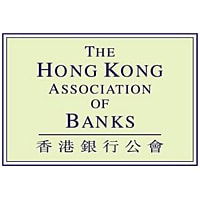Authorities
HONG KONG MONETARY AUTHORITY (HKMA)
HKMA is Hong Kong’s currency board and de facto central bank. It is a government authority responsible for the stability of the currency and the banking system.
Hong Kong Association of Banks
– Replaced the exchange bank association
– Provides a framework for the Hong Kong Government to exchange views with the banking sector for the further development of the industry
– Although banking licenses are granted by the Hong Kong Monetary Authority, no fully licensed bank can operate in Hong Kong is thus subject to HKAB’s rules.
– The members are the banks (each bank has a representative)
Hong Kong Stock exchange
The Hong Kong Stock Exchange (HKEx) is a stock exchange located in Hong Kong. In 1891, the Association of Stockbrokers in Hong Kong was established, becoming Hong Kong’s first formal stock market. It was renamed The Hong Kong Stock Exchange in 1914. By 1972, Hong Kong had four stock exchanges in operation. Strong sentiments for unification soon developed and eventually The Stock Exchange of Hong Kong Limited (the Exchange) was incorporated in 1980 and trading on the Exchange finally commenced on 2 April 1986.
– Asia’s third largest stock exchange in terms of market capitalization
– Sixth largest in the world
– As of November 2013, it had 1615 listed companies (737 from Hong Kong, 776 from Mainland China, 102 from abroad)
Banks
Deposit-taking institutions are divided into 3 tiers:
1. Licensed Banks
2. Restricted license banks
3. Deposit-taking companies
Licensed Banks
Allowed to operate current and savings account, accept deposits of all sizes and maturity from public and pay or collet cheques drawn, or paid in, by customers.

The Bank of East Asia Limited (BEA) is the largest independent local bank and 3rd largest bank in Hong Kong. Its chairman and chief executive is Sir David Li. It was founded in Hong Kong in 1918 by the grandfather, Li Koon-chun, and great-uncle of the current chairman, Sir David Li. As of Feb 2011, BEA has a market capitalisation of HK$68.4 billion. Today, it has 168 retail branches in Hong Kong, 60 in Mainland China and approximately 30 in Unite States, Canada and Britain. Total employment stands more than 10,800 people.
– Listed on the Hong Kong Stock Exchange with a stock code of 23
– In 1995, BEA acquired United Chinese Bank, merging fully in 2001.
– In 2000 it acquired First Pacific Bank.
– On September 2008, BEA had to restate its past six months’ earnings by a drop in nearly 12 percent when it was found out that a staff made unauthorized trades and covered up the losses.
– Established and based in Hong Kong since 1865
– Founding member of the HSBC Group
– One of the leading subsidiaries of the London-based HSBC Holdings PLC
– Largest bank in Hong Kong
– Operates branches and offices throughout the Asia Pacific region
– HSBC acquired a 62.14%, controlling interest in the local Hang Seng Bank in 1965 during a crisis of the latter
– Authorised to issue banknotes for Hong Kong

A commercial bank whose major business activities include retail banking, wealth management, commercial banking, treasury services, and private banking. It operates a network of around 220 branches in Hong Kong and is one of Hong Kong’s leading public companies in terms of market capitalisation and is part of the HSBC Group
– Founded by Hang Seng Ngan in 1933 with 3 business partners
– Started as a simple money-changing shop
– In 1952, it embarked on commercial banking
– Turned into a public company in 1960
– 1965, bank run depleted 1/4 of its deposit, allowing HSBC to acquire 51% (subsequently 62.14%) interest of Hang Seng Bank, giving HSBC controlling power over Hang Seng Bank
– 1969, The Hang Seng Index was introduced as a public service and was eventually used as an indicator of the stock market.
Bank of China (HK) is the second-largest commercial banking groupin Hong Kong in terms of assets and customer deposits with more than 300 branches in Hong Kong. Established on October 2001, it was subsequently publicly listed a year later.
– One of the three banks which issue banknotes for Hong Kong, the other two being Standard Chartered (HK) and HSBC.
– The biggest member and a founder of the JETCO ATM and payment system, the largest teller network in Hong Kong and Macau.
– Holds majority share of Chiyu Banking Corporation and Nanyang Commercial Bank
Public Bank (HK) is a licensed bank established in 1930s in Hong Kong. Originally named Asia Commercial Bank Limited and owned by Asia Financial Holdings Limited, it was acquired by Public Financial Holdings Limited in 2006.
Restricted License Banks
This banks are mostly engaged in merchant banking and capital market activities. They take in deposits of any maturuty of $HK500,000 and above.
- Bank of Shanghai (Hong Kong)
- Orix Corporation
- Kookmin Bank (Hong Kong)
- Morgan Stanley Asia International

Founded in 1995, Bank of Shanghai is a based in Shanghai, Mainland China. It is one of the top 16 largest bank in China in terms of total assets. It expanded beyond Mainland China and in 2013, established the Bank of Shanghai (Hong Kong) through the acquisition and renaming of Construction Bank of China (Asia).
A major financial service group established and headquartered in Japan, Orix has today expanded globally, offering financial services in Asia, Northern America, Northern Africa and the Middle East.

Kookmin Bank is among the four largest banks of South Korea in terms of asset value.

A multinational financial services corporation based in New York city.













